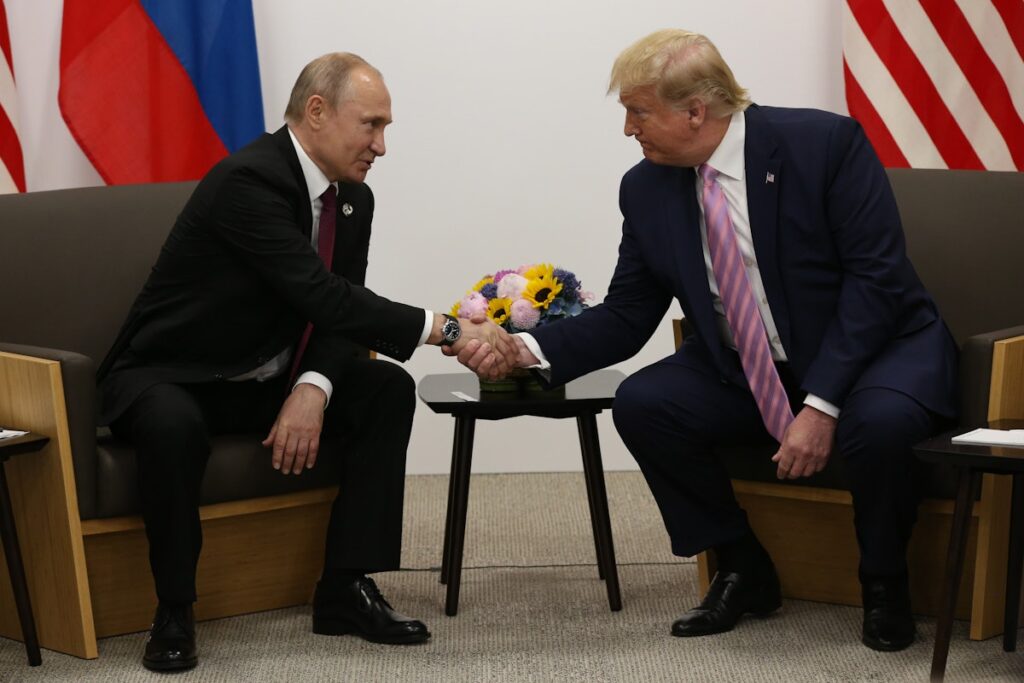In a revealing interview at the Economic Club of Chicago, former President Donald Trump expressed pride in his ongoing relationship with Russian President Vladimir Putin, despite the controversy it generates. When pressed by interviewer John Micklethwait of Bloomberg on whether he had spoken to Putin since leaving office, Trump artfully sidestepped a definitive answer. Instead, he suggested that maintaining friendly relations, even with contentious figures like Putin, is advantageous. This insinuation implied acknowledgment of prior communications, closely aligning with revelations from Bob Woodward’s recent book, War, which claims Trump had engaged with Putin multiple times post-presidency.
Micklethwait’s inquiries pushed Trump to clarify his stance yet again, yet Trump’s evasiveness revealed his reluctance to discuss specifics regarding his communications with Putin. His comments danced around the question, framing any hypothetical interactions as strategically wise. The implication that being on cordial terms with global leaders, especially those deemed adversarial by many, is both shrewd and beneficial set the tone for Trump’s perspective. This attitude of treating international relations as personal alliances underlines Trump’s unconventional diplomatic style, where connections with adversaries are viewed as strengths rather than liabilities.
Despite attempts by the media and political critics to confront Trump about his ties to Putin, he unabashedly defended these relationships in various speeches and interviews, emphasizing his ability to “get along” with prominent figures across the globe. Trump’s rhetoric during these engagements continues to underplay the seriousness of these associations, focusing instead on the advantages of being perceived as a collaborative leader. By touting his rapport with Putin, Trump seems to challenge the prevailing narratives around U.S.-Russia relations and to position himself as a statesman with a unique ability to navigate complex geopolitical dynamics.
Trump’s team rebuffed claims regarding his conversations with Putin, dismissing Woodward’s report as a fabrication from a “demented and deranged man.” This reaction underscores the contentious relationship between Trump and the mainstream media, particularly when it comes to interpretations of his actions and policies. Even as discomfort around his past with Putin lingers, Trump’s supporters often rally around his narrative that these relationships underscore his diplomatic prowess rather than inconsistency or recklessness.
The ongoing discussions about Trump’s relationship with Putin serve not only as reminders of his presidency but also as predictors of his potential political aspirations. If Trump were to run for office again, these interactions could deeply influence public perception and voter sentiment regarding his foreign policy approach. His insistence on maintaining dialogue with Putin resonates with a segment of the electorate that prioritizes non-confrontational diplomacy. Ultimately, how these revelations are framed in the media and understood by the public may significantly shape Trump’s political future and the broader conversation about America’s role in the world.
In summary, Trump’s interview highlights his complex relationship with Vladimir Putin, affirming his belief in the value of diplomatic engagement, even with controversial figures. While the media presses for clarity and accountability regarding his contacts with the Russian leader, Trump continues to frame their association as a mark of strategic success. This dynamic instigates a broader debate about foreign relations and the responsibilities of U.S. leaders in an increasingly polarized political landscape. The tensions and narratives stemming from Trump’s rhetoric around Putin are likely to persist, influencing public discourse and potentially his political trajectory as he navigates past controversies and future ambitions.

